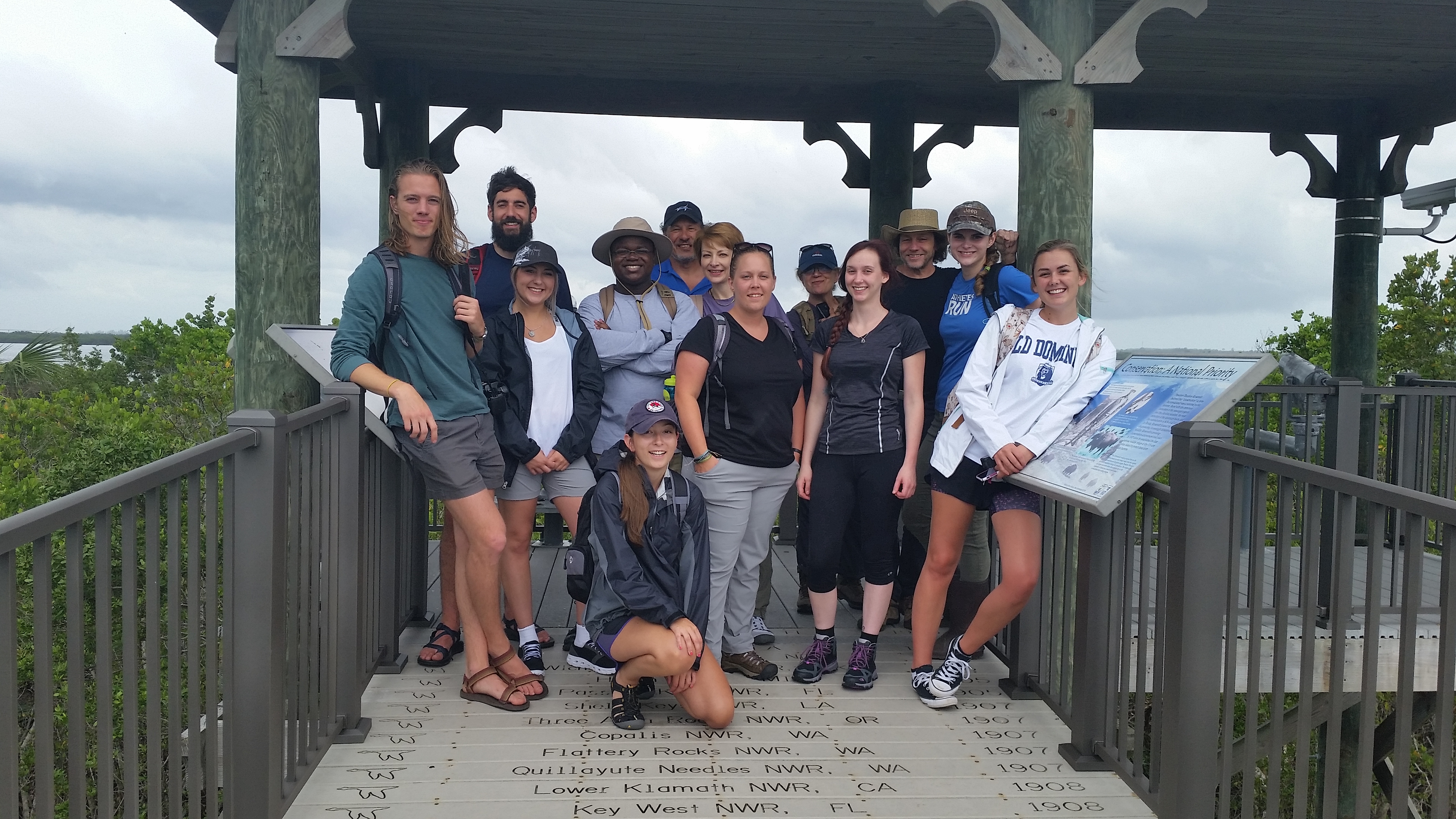 |
|
 |
MARI News Press Releases Blogs&Lists About Us Newsletter Disclaimers |
Sustainability Leadership
Course: Biol 496 (CRN 37015), IDS 495 (CRN 35771), OEAS 495 (CRN 35769); three credits
Course title: Sustainability Leadership
Instructors: Dr. Hans-Peter Plag, Tatyana Lobova, Michelle Heart
Term: Summer 2017, May 15-June 24, 2017
Time: Mondays and Wednesday, 9:00 AM - 1:00 PM
Location: Batten Arts-Letters 2068
|
Course description: Creating a more sustainable society presents a serious challenge and at the same time an enormous opportunity. In this class, students will discover what makes a leader for sustainability. They will consider a range of global and local crises from a leadership point of view in the context of sustainability science, which addresses the development of communities in a rapidly changing social, economic, and environmental system-of-systems environment. The course will be based on taking a problem-motivated and solution-focused approach to the challenges considered. The learning goals of the courseStudents will acquire the skills and styles that we consider most relevant for sustainability leaders:
|
ANNOUNCEMENTS
|
COURSE CONTENTS:
Humanity's struggle for sustainability in the face of rapid social, economic, and environmental changes points to a failure of individual and collective leadership. There is a lack in quality and quantity in governments, businesses, and society in general of leadership with the vision, insight, and strength required to make progress towards sustainability. Without this leadership, the most serious and urgent social and environmental crises cannot be resolved. The sustainability challenges include population growth, food and resource security, land use and its impact on the earth's life-support system, climate change, social stability and equality, and achieving an economic system that facilitates and rewards sustainability.
Creating a more sustainable society presents a serious challenge and at the same time an enormous opportunity for advancement. While we do have the understanding to create the required system knowledge and to develop the goal knowledge for desirable futures, there is a lack in terms of the transformation knowledge that forms the basis of system interventions to get closer to desirable futures.
In this class, students will discover what makes a leader for sustainability. They will consider a range of these crises from a leadership point of view in the context of sustainability science, which is a science field that addresses the development of communities in a rapidly changing social, economic, and environmental system-of-systems environment. Creating transformation knowledge that can help to make the transition from the current state to a desirable future and implementing the interventions that can change the system trajectory in the desired way requires leadership skills that are different from those required to keep a system on a predictable and well defined trajectory.
Sustainability leaders can craft a vision for a better world and inspire individuals and communities to act collectively to enable progress and make transformation towards the vision of such desirable future. Institutions and their leaders working in isolation cannot solve the wicked problems that societies face. Sustainability leaders must have the skills to bring diverse groups together across institutions, disciplines and societal sectors and across different levels to overcome the disciplinary and sectoral segmentation. Addressing the grant challenges at all levels from local to global requires a deep understanding and appreciation of the interconnected nature of the coupled social, economic and environmental systems. Such “systems thinking” is fundamental for sustainability. For this kind of thinking the promotion and sharing of knowledge across traditional disciplinary boundaries is imperative. The course will account for this by taking a problem-motivated and solution-focused approach to the challenges considered.
PREREQUSITES
BIOL/IDS/OEAS 466
REQUIRED RESOURCES
All necessary information for the course, including the reading list and homework are posted here: http://www.mari-odu.org/academics/2017su_leadership.
You are responsible for reading and complying with all information posted.
SERVICE LEARNING FIELD TRIP
The course includes a service learning project focusing on a leadership experience in solving a real-world environmental problem. The project will address a set of environmental problems in Florida and will require a field travel from June 4-10, 2017 to Vero Beach, Florida. Funding is available to cover the travel and subsistence for the field week for students who meet the selection criteria.
If you can not work this trip into your schedule, please drop the course immediately.
Evaluation
The course combines lectures with exercises and project work. There are weekly reading assignments and a brief case study paper. The project work includes a service learning activity, which results in a report. The report has to be presented to a group of stakeholders during the service learning week.
Participation in weekly work including the brief case study paper = 30% of final grade
Project work (20% preparation report, 25% final report + 25% presentation) = 70% of final grade.
You will be graded on a standard scale:
100-90% =A
89.9-80% =B
79.9-70% =C
69.9-60% =D
59.9% and below=F.
University regulations prohibit communicating test results via email or by phone. If you wish to talk about your grade, please make an appointment. All scores will be placed on BlackBoard as soon as possible after they are graded.
